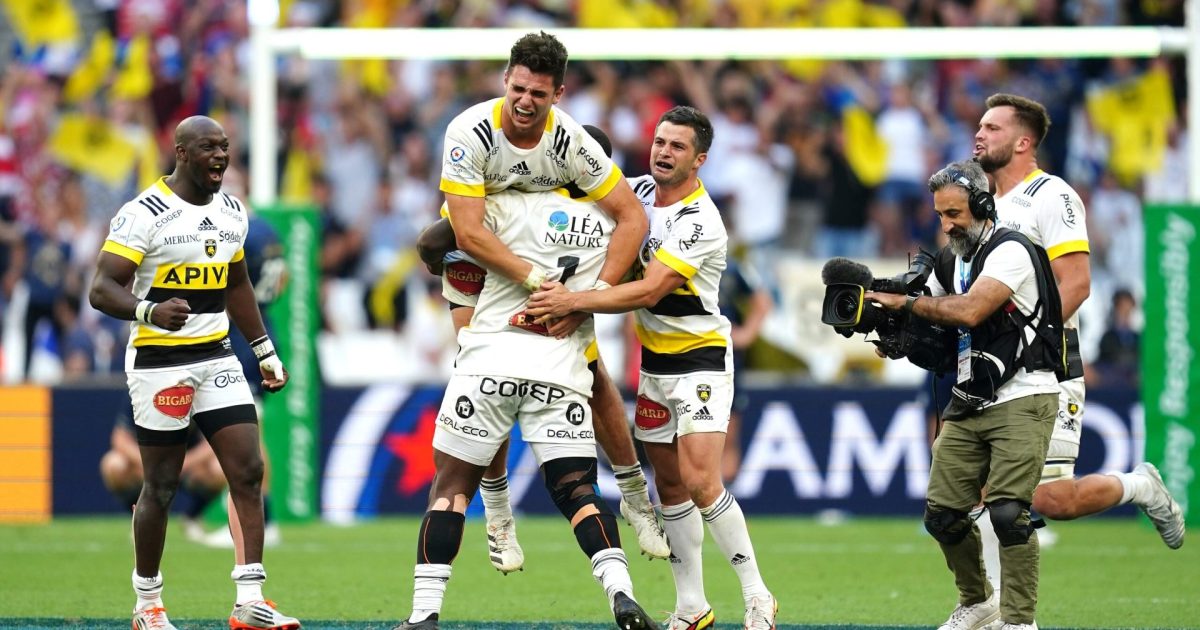What France's European dominance has taught everyone else

The European Finals weekend brought with it plenty for French teams to celebrate. Three of the four finalists in the Heineken Champions Cup and Challenge Cup showdowns hailed from France and, when La Rochelle turned a distant dream into a reality, total European dominance was confirmed.
Very few gave La Rochelle a chance of beating a Leinster side stacked with international pedigree, but Ronan O’Gara’s band of brothers refused to give their opposition the same credence. They flew quickly up in defence and were expansive in attack, stifling their opposition for the full 80. And yet, thanks to the boot of Johnny Sexton, Leinster remained in front for most of the contest, until replacement scrum half Arthur Retière bundled over in the dying minutes to give La Rochelle their first taste of European glory.
Only a day before, Lyon soared to new heights when they dominated Toulon 30-12 in the Challenge Cup final. In front of a rapturous Stade de Marseille crowd, another scrum-half in the form of Baptiste Couilloud crossed for the opening try and from then on Lyon proved insurmountable.
Notably, this too was their first European title. The breakthrough success of La Rochelle and Lyon in international club rugby is not simply a story of underdog success, it signposts the fundamental value of relegation and promotion in club competition.
In the 2013-2014 season, both cup winners were playing in the Pro D2. Lyon were crowned champions come the end of that season and earnt promotion to the Top 14. They were joined by La Rochelle, who beat Agen 31-22 in the play-off final, having spent the last three years in the French second division.
Promotion suited La Rochelle better than Lyon, as the Stade de Gerland outfit were instantly relegated a season after. However, they made it back to the top tier in 2016 and have stayed there ever since.
It is no secret that financial investment goes hand in hand with a promotion bid. La Rochelle increased their stadium capacity to 15,000 and had a budget injection of 16.5 million euros to help their bid while Lyon had strong financial reserves between 2011 and 2016 when they were considered a proverbial yo-yo team. A couple of years on and both are now European title winners, all because they were given time to grow, both on and off the field.
The Gallagher Premiership could truly benefit from adopting a similar system. Ealing Trailfinders topped the Championship table this season but were denied promotion on the grounds that the club’s facilities did not meet a minimum standards criteria. The London team have been on the fringes of the Premiership for some time now and can feel hard done by at the ruling.
Without the incentive of promotion, investment in Championship clubs will become harder to come by and fan involvement will soon reach a ceiling.
Compare this with the reaction to La Rochelle’s European triumph. The city only has a population of around 75,000 but its port was flooded with jubilant supporters, immensely proud of what their club achieved.
Plenty of teams in the English second division will have watched that enviously, foreseeing what could be possible if promotion became genuine.
#ChampionsCup #MondayMotivation
Le Port de La Rochelle en fusion après le retour des Héros ! 😍😱💛🖤 @staderochelais pic.twitter.com/S2j3dCGDBv
ADVERTISEMENT— TOP 14 Rugby (@top14rugby) May 30, 2022
And it wasn’t long ago that an English team benefitted from promotion. The Exeter Chiefs first broke into the Premiership back in 2010 and have since become a perennial title contender. They won the league twice in 2017 and 2020, and lifted the Champions Cup in 2020 after beating Racing 92 in the grand finale.
Admittedly, not all promotions are successful. You need look no further than the case of London Welsh, who fell into administration after a season spent in the Premiership. But if anything, this demonstrated how England’s top league is increasingly becoming a closed shop.
In stark contrast, the French system shows the value of having a competitive second division that filters into the top flight. And the European winners over the weekend are markers of this.
Since earning promotion, both Lyon and La Rochelle have edged their way into the Top 14 playoffs. La Rochelle have now appeared in two consecutive Champions Cup finals and Lyon have claimed their first major honour since 1933.
Financial investment has no doubt helped each team’s ascent, but neither would be where they are today if promotion was not in place.
























































































